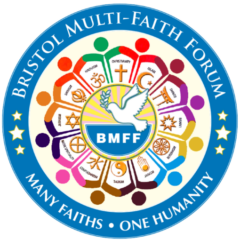The Bristol Multi Faith Forum, representing the network of people from all different faith groups in the city, offers sincere condolences to the family of Becky Watts.
The death of a loved daughter is hard enough to bear. The circumstances and crimes that brought about Becky’s death are horrific. It is hard to understand how this could happen.
In faith communities across Bristol people are mourning with Becky’s family and friends and praying for them in their grief.
In these difficult days, we continue to pray that together we will find ways of stepping up to challenge violence, wherever we find it.
Revd. Tracey Lewis.
Chair of Bristol Multi Faith Forum
